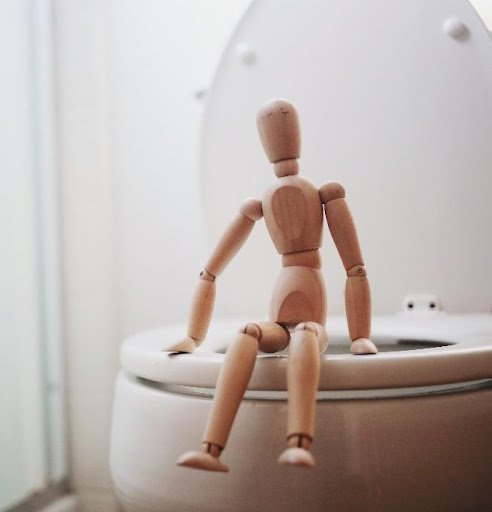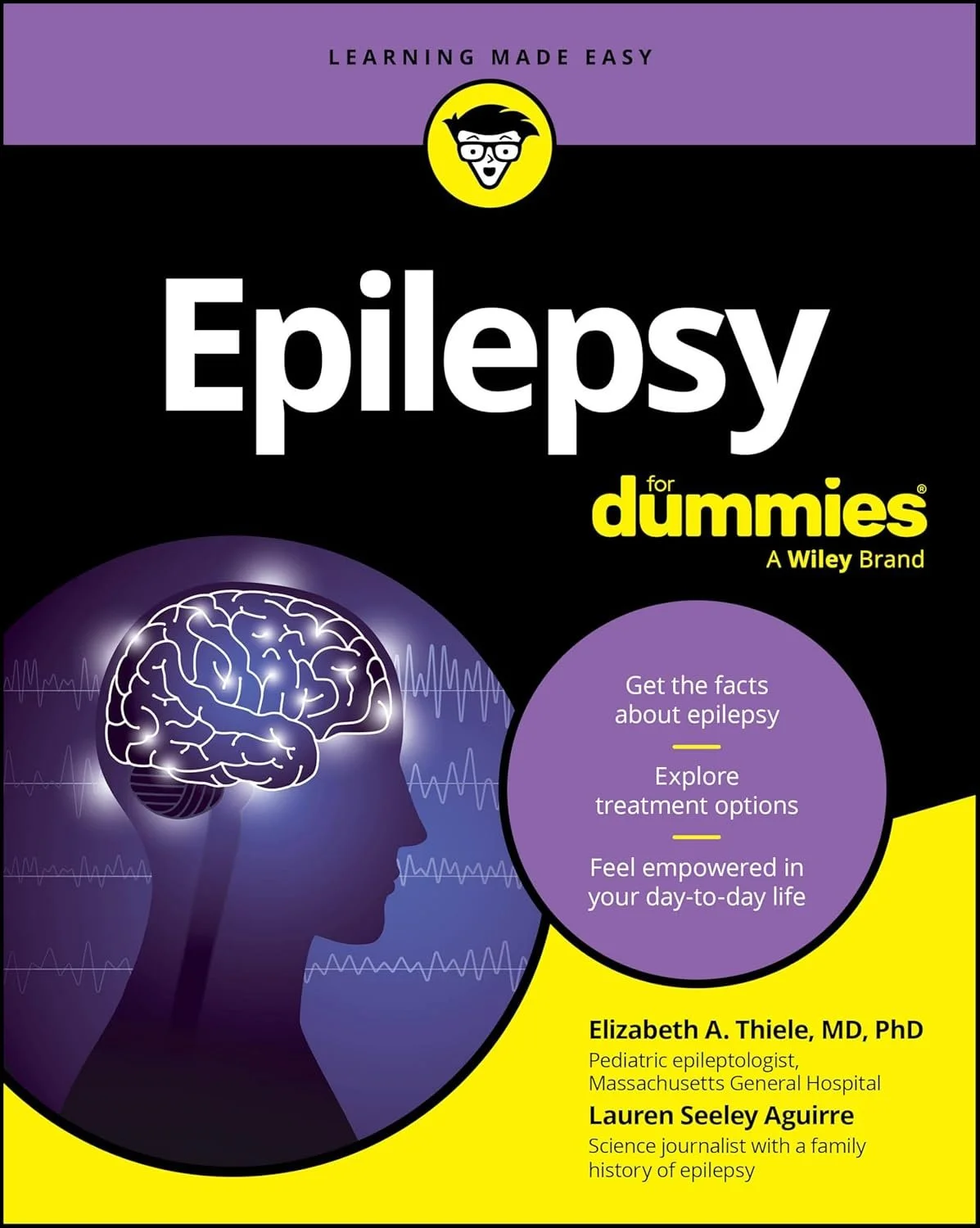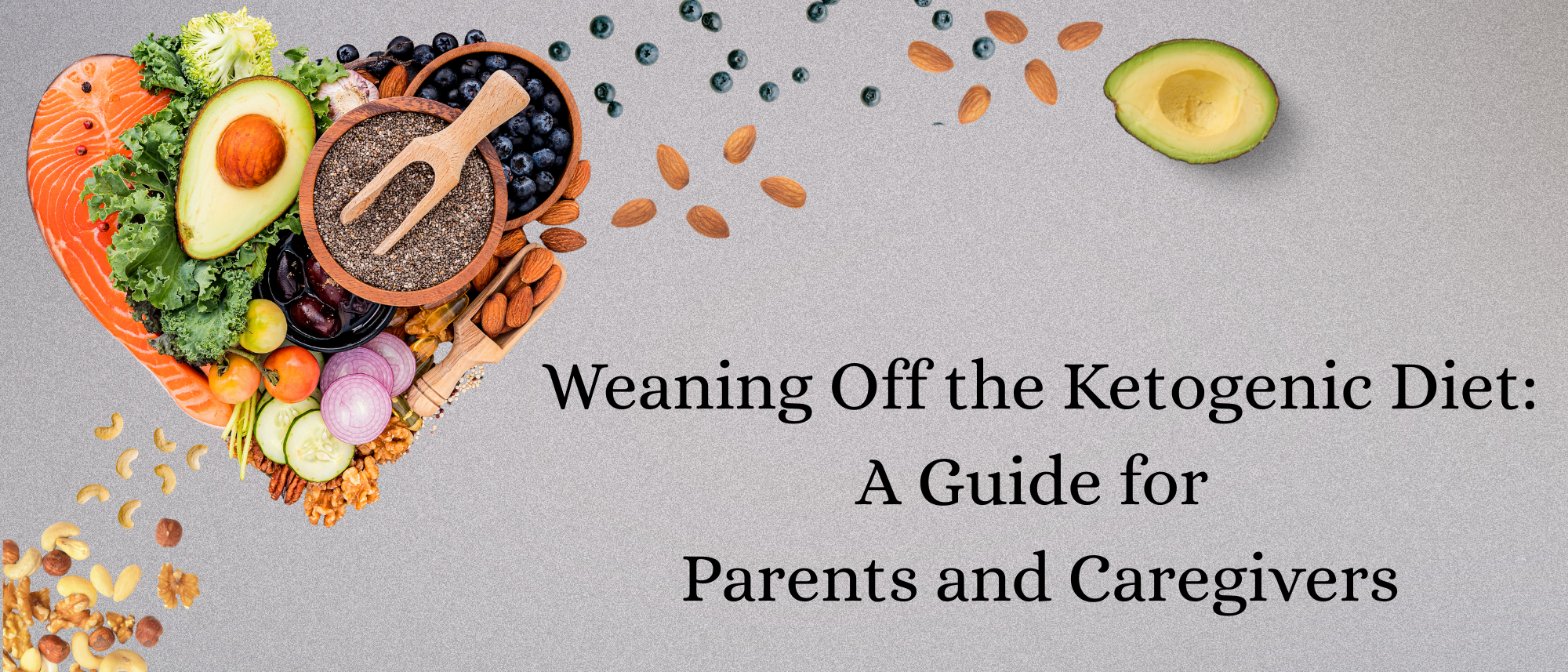Living with Keto for the Long Haul
/By: Laura Dority, MS, RD, LD
Reviewers: Dr. Tracy Gertler & Meredith Johnson, MS, RD, CSP, LD
Introduction
For many families, the ketogenic diet (KD) is more than a short-term intervention — it can become a long-term therapy for managing seizures when medications fall short. While its effectiveness is well established, families often wonder: Is it safe to stay on keto for years?
The truth is, misconceptions about long-term KD are common. Families may hear scary claims — from bone loss to dangerous cholesterol levels or even stunted growth. While side effects are possible, many of these risks are avoidable and preventable. Research shows that most children and adults on long-term KD can maintain stable health when the diet is closely monitored with regular labs, supplements, individualized adjustments, and guidance from a knowledgeable healthcare team.
This article explores what the research shows, where uncertainties remain, and how families can work with their healthcare teams to make long-term keto as safe and successful as possible.
Short-Term vs Long-Term Side Effects
Families often report short-term issues when starting KD, such as constipation, diarrhea, nausea, vomiting, weight changes, hunger, lethargy, hypoglycemia, dehydration, or food refusal. These are usually most noticeable early as the body adapts.
Over the long term, concerns may include slowed growth, constipation, elevated lipids, kidney stones, osteopenia, and carnitine deficiencies. Some complications — like metabolic acidosis, electrolyte imbalances, and vitamin/mineral deficiencies — can occur at any stage, making regular monitoring essential.
Insights from Healthcare Providers
In a recent survey of over 30 ketogenic diet specialists, we asked how they approach long-term KD:
· Duration: About 43% of providers reported having patients on the KD for more than 2 years, with some patients continuing for over 20 years.
Conditions: Long-term use is common for GLUT1 deficiency syndrome, pyruvate dehydrogenase deficiency, mitochondrial disorders, and drug-resistant epilepsy.
Monitoring: Nearly all providers rely on routine labs, growth tracking, and symptom check-ins.
Common Adjustments: To improve sustainability, providers often lower the KD ratio, liberalize the diet (e.g., MAD or LGIT), or add MCT oil to increase flexibility while maintaining seizure control.
Clinicians emphasized that, overall, side effects on long-term ketogenic diet therapy can be managed successfully. As one provider noted, “In our experience, side effects are usually easy to manage with appropriate follow-up care.”
Another explained that while “we’ve occasionally seen vitamin deficiencies, these were mostly linked to poor supplement compliance.”
A third clinician added perspective from years of practice: “Most side effects show up within the first year. With careful supplementation and monitoring, long-term keto doesn’t necessarily get harder over time.”
What the Evidence Tells Us
A recent systematic review looked at 26 clinical trials examining the side effects of the KD in children with medication-resistant epilepsy. The researchers separated side effects into short-term (the first three months) and long-term (beyond three months).
In the early weeks, the most common challenges were digestive upset — such as constipation, diarrhea, or stomach pain — which affected nearly half of patients. About one in four experienced neurological effects like tiredness or sluggishness. Hypoglycemia was reported occasionally but was usually short-lived, while issues like acidosis and kidney stones were rare.
Over the longer term, digestive problems continued to be the most common concern. Some children experienced less lethargy but more appetite loss. Bone density changes and kidney complications were also reported in some studies.
The encouraging news is that most of these side effects are temporary or manageable and rarely lead to stopping the diet. The review also noted that using a lower fat-to-carbohydrate ratio (such as 2.5:1 instead of 4:1) may help reduce side effects, though this could lessen seizure control in some children. Overall, the findings reinforce the importance of close monitoring, personalized adjustments, and long-term follow-up to help families stay successful on KD.
Growth and Bone Health Need Attention
A 2023 study (Corsello et al.) found that the diet may slow growth and reduce bone mineral density (BMD), particularly without careful monitoring, and emphasized starting preventive micronutrient supplementation from the beginning. Similarly, a 2025 study (Bahbah et al.) of 56 children on KD for more than 2 years reported consistently lower bone density compared to healthy peers. However, outcomes were not worse than in children on anti-seizure medications alone, with ambulation and AED use proving stronger predictors of low bone density than the diet itself. Importantly, BMD reduction was seen across all groups—even with vitamin D and calcium supplementation—likely relating to less weight-bearing activity and underscoring the need for ongoing bone monitoring.
Heart Health is Usually Stable
The same Bahbah study showed that cholesterol and lipid levels often rise early on KD but typically do not result in heart disease or heart damage after 2+ years. Echocardiograms and vessel scans remained normal, and long-term KD did not increase cardiometabolic risk compared with children treated only with AEDs.
Nutrients Can Be Tricky
Research reviews show that KD can leave children short on several vitamins and minerals — particularly selenium, calcium, and B vitamins. Even with well-planned meals, these nutrients often fail to meet daily requirements without supplementation. Regular lab checks and a strong supplement plan are therefore essential parts of long-term management.
Where We Still Have Questions
Cognition and learning: Some studies suggest that children may experience better alertness, attention, or overall development while on KD; however, it is difficult to determine whether these effects are due to the diet itself or simply the result of reduced seizure activity.
Gut health: GI symptoms (constipation, reflux, abdominal pain) are among the most common side effects in both the short- and long-term studies. Research into the microbiome is still very new – while we know that it changes on the KD, it is not clear what these changes indicate.
Family fatigue: Perhaps the most universal challenge is not medical but emotional — the day-to-day effort of meal prep, restrictions, and long-term planning. In our provider survey, more than 60% listed “family fatigue” as their top concern.
Caregiver Takeaways
The key to long-term KD success is working closely with your healthcare team. Neurologists and dietitians can help fine-tune the diet, monitor labs, adjust medications, and address side effects before they become bigger concerns.
With their support, families can:
Expect most side effects in the transitional period — these often improve as the body adapts.
Know that digestive issues are the most common, both short- and long-term.
Work with their healthcare team to adjust the KD ratio while still maintaining seizure control.
Adhere to the supplement plan provided by your care team to help prevent deficiencies and side effects.
Stay on top of labs to catch nutrient or metabolic issues early.
Track growth and development by monitoring height, weight, and milestones.
Conclusion
The KD isn’t a quick fix — it’s a powerful long-term therapy for those living with difficult epilepsy. Research shows that while side effects like bone density loss or nutrient gaps are possible, most can be managed with proactive care. Families who partner closely with their healthcare teams can maximize the benefits of KD while supporting growth, health, and everyday life.
References:
Bahbah, W., et al. “Long-term cardiometabolic and bone health consequences of ketogenic diet in children with refractory epilepsy.” Italian Journal of Pediatrics, vol. 51,2025, p. 261.
Corsello, A., et al. “Ketogenic diet in children and adolescents: The effects on growth and nutritional status.” Pharmacological Research, vol. 191, 2023, p. 106780.
Neal, E., et al. "Cognitive Benefits of the Ketogenic Diet in Patients with Epilepsy: A Review." Epilepsy & Behavior, vol. 87, 2018, pp. 69–74.
Prudencio, M., et al. “Micronutrient supplementation needs more attention in patients with refractory epilepsy under ketogenic diet treatment.” Nutrition, vol 86,2021, p. 111158.
Pulsifer, M., et al. "Ketogenic Diet Effects on Neurobehavioral Development of Children with Intractable Epilepsy: A Prospective Study." Epilepsy & Behavior, vol.59, 2016, pp. 239–245.
Sepehrar, S., et al. “Short and long-term side effects of the Classic Ketogenic Diet in pediatric epilepsy treatment: A systematic review of clinical trials.“ Seizure: European Journal of Epilepsy, vol. 131, 2025, pp. 382-390.
Zupec-Kania, Beth & Zupanc, Mary. “Long-term management of the ketogenic diet: Seizure monitoring, nutrition, and supplementation.” Epilepsia, vol. 49, suppl 8, 2008. pp. 23-26.
Disclaimer:
This is not an exhaustive list of side effects. Each individual may respond differently to the ketogenic diet. Always consult your healthcare provider for personalized guidance.







































